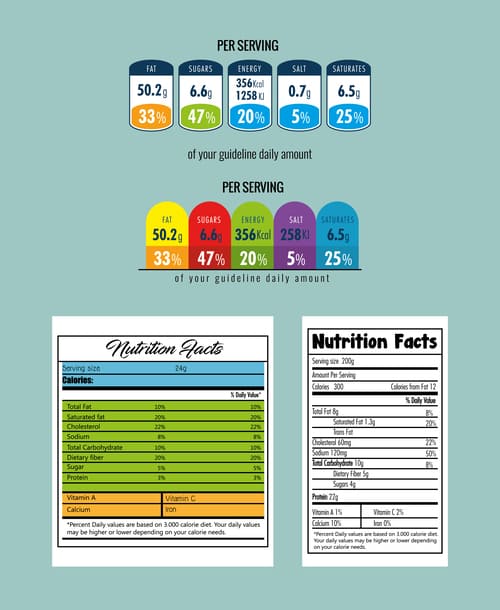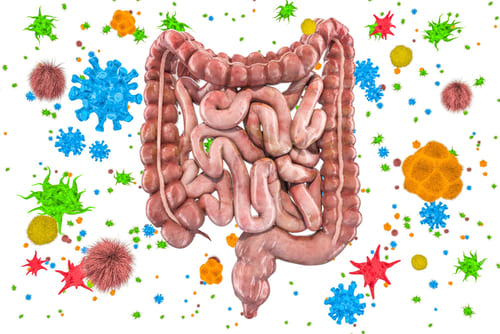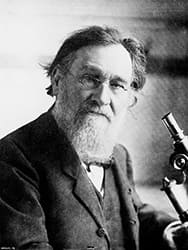What are probiotics?
Characteristics of probiotics
For a probiotic to be considered as such, it must meet a series of characteristics.

- Safety: They must be safe: no adverse effects.
- Probiotic strain: When choosing a probiotic, the ideal is to know not only the species, but also the strain, since not all strains exert the same effects on the organism.
- Resistant: They must be microorganisms resistant to gastric secretions and bile acids so that they can reach the site of action alive and can adhere to the intestinal or vaginal epithelium.
- Quantity: The amount of probiotics per dose, generally expressed in millions of cfu, must be sufficient to guarantee the minimum viable in the area of action during the useful life of the product.
- Clinical studies: There must be scientific evidence with clinical studies showing the efficacy of the particular strain.
- Labeling: Ideally, it should indicate the amount of each probiotic, as well as the genus, species and strain, something that many of those marketed today do not indicate.
Probiotics have long been used as a way to improve gut health and treat gastrointestinal disorders. These microorganisms have been shown to have a positive effect on the balance of gut bacteria, helping to maintain a healthy gut microbiota.
Probiotics are also available as supplements, usually capsules or tablets, with a combination of bacteria and yeast, although fermented foods such as yogurt, kefir, kimchi and sauerkraut are also commonly found.
It is important to keep in mind that not all probiotics are the same, they differ by genus, species and even strain of each microorganism, with each strain having different effects on the organism. Therefore, it is important to choose a probiotic that suits individual needs and seek medical attention or pharmaceutical advice before starting to take probiotic supplements.
Probiotics and Prebiotics
We should not confuse Probiotics with Prebiotics.
Probiotics are microorganisms, bacteria and yeasts that exert a beneficial effect on our organism, while prebiotics are dietary fibers that probiotics feed on.
In short, a prebiotic is the food of a probiotic.
What are probiotics used for and what are their benefits?
Probiotics have numerous health benefits, and have been studied extensively in recent years because of their potential to improve gut function and promote overall health. Today, many researchers continue to conduct clinical studies on the health benefits of probiotics.

In addition, probiotics may also be beneficial in treating other health conditions. Some strains have anti-inflammatory, antioxidant and anti-tumor properties. They have also been suggested to help strengthen the immune system and prevent infections.
One of the main benefits of probiotics is that they can help keep the gut microbiota balanced and healthy. But in addition, they are also beneficial for the vaginal, oral or skin microbiota, contributing to their balance and healthy state.
The intestinal microbiota has a great influence on the rest of the body through the gut-brain axis, which is a connection regulated at a neuronal and immunological level. Therefore, having a healthy and balanced intestinal flora will make our whole organism feel better, with a stronger immune system and less risk of infections or other health conditions.
Some of the main benefits of probiotics are:
- Balancing the microbiota: The gut microbiota is a complex community of microorganisms that live in the intestine and perform a variety of important and beneficial functions for our body. This community lives in balance, with no species growing more than it should, but if for some reason one species begins to grow out of control, a problem of dysbiosis occurs, an imbalance that needs to be corrected.
- Probiotics help to restore this healthy balance of bacteria in the intestine, thus contributing to overall health.
- In the case of other mucous membranes, such as the vaginal microbiota, they also help to maintain the proper balance and prevent certain common infections such as vaginal candidiasis or bacterial vaginosis.
- Improved gut health: Probiotics can help maintain a healthy gut microbiota, which contributes to better digestion and nutrient absorption in the intestine. They can also reduce the risk of gastrointestinal diseases and disorders such as antibiotic-associated diarrhea, constipation, diarrhea, gas and inflammatory bowel disease or irritable bowel syndrome.
- Boosting the immune system: Some probiotic strains have a positive effect on the immune system, increasing antibody production and immune cell activity, which boosts the body's ability to fight infection and medical condition.
- Reduced inflammation: Some strains have anti-inflammatory properties, which can be beneficial in the treatment of medical conditions diseases such as diabetes, cardiovascular disease or even cancer due to their anti-tumor properties.
- Mental health: There is some evidence to suggest that probiotics may have a positive effect on mental health. These are called psychobiotics. Some studies have shown that certain strains of probiotics can reduce symptoms of anxiety and behavioral disorders.
In summary, probiotics provide a wide range of health benefits, from improving intestine function to boosting the immune system and reducing inflammation.
How do probiotics work?
Probiotics act in the body in several ways:
On the one hand, they are beneficial bacteria that colonize the intestine and replace pathogenic bacteria that cause infections and other health problems. They also produce antimicrobial substances such as bacteriocins that prevent colonization of the intestine by pathogenic microorganisms, thus rebalancing the intestinal microbiota. All these substances produced by these microorganisms are beginning to be called postbiotics.

In addition, probiotics can stimulate the body's immune system, helping to fight infections and reduce the risk of chronic diseases. These bacteria also synthesize short-chain fatty acids that are needed by some intestinal cells for the nutrient absorption process.
In the case of the vaginal microbiota, these microorganisms produce certain acids that reduce the pH of the vagina to values that prevent the growth of pathogenic species, as in the case of Candidia albicans infections,
In general, probiotics have the potential to improve intestinal health, strengthen the immune and digestive system, and prevent chronic diseases. However, it is important to keep in mind that the effects of these microorganisms may vary from person to person and from the particular species and strain of probiotic.
Are there risks associated with probiotics?
Probiotics are generally considered safe for most people, but, nevertheless, we cannot say that they are completely risk-free, as the health status of the person, the dosage, and the particular strain may influence.
In certain types of cases, such as immunosuppressed patients or sick premature babies, there may be some adverse effects, such as some type of infection. In these cases, it is important to consult with the specialist, especially if the patient is taking some type of immunosuppressive drug since they can trigger allergic reactions.
Other possible side effects are gastrointestinal, with some episodes of gas, bloating the first few days or diarrhea, which are usually mild and disappear after a couple of days.
In addition, many probiotics are categorized as GRAS (Generally Recognized as Safe) by the US FDA and/or QPS (Qualified Presumption of Safety) by the European EFSA, i.e. they have the approval of these organizations that allow affirming the safety of these particular strains.
Finally, there is more and more documentation and clinical studies carried out on all types of populations, we can verify that the cases of adverse effects are really isolated.
What are probiotic foods?
Probiotic foods are those that carry live beneficial microorganisms that can improve intestinal health.
Some foods rich in probiotics are:
- Yogurt: Yogurt is one of the best known and most popular probiotic foods. Plain yogurt with no sugar and no added flavors is the best choice.
When you go to the store to buy yogurts, make sure that the label says yogurt, because you can find many fermented milks, but they are not yogurts. Only fermented milks with Lactobacillus delbrueckii subsp. bulgaricus and Streptococcus thermophilus can be called yoghurt.

- Kefir: Kefir is similar to yogurt, but has a more liquid consistency. It is rich in beneficial bacteria and also contains protein and calcium.
- Sauerkraut: Sauerkraut is a fermented cabbage preparation that is rich in probiotics. It is also a good source of vitamin C and fiber.
- Kimchi: Kimchi is a Korean dish that is prepared with fermented cabbage, radish, garlic, ginger and other seasonings. It is an excellent source of probiotics and also contains vitamins and antioxidants.
- Kombucha: Kombucha is a fermented beverage made from sweetened tea and beneficial bacteria and yeast. It is a good source of probiotics and also contains antioxidants.
- Tempeh: Tempeh is a fermented soy-based food that is rich in protein, vitamins and minerals. It is also a good source of probiotics.
- Miso: Miso is a fermented paste made from soybeans and other grains, such as rice or barley. It is a good source of probiotics and is also rich in protein, vitamins and minerals.
- Cheeses: Some cheeses, such as cheddar, gouda and parmesan, also contain beneficial bacteria.
It is important to choose natural, unprocessed probiotic foods for the greatest health benefits. It is also advisable to consume a variety of probiotic foods to get a wide range of beneficial bacteria.
Probiotic supplements

- Probiotic supplements are products that contain a concentration of live beneficial bacteria in the form of capsules, tablets, powders or liquids. Some of the most common probiotic supplements include species of the genera Lactobacillus and Bifidobacterium:
- Lactobacillus acidophilus: very common probiotic and is one of the best known species for intestinal health and to improve situations of abdominal pain and diarrhea, especially in children. Among the best known strains, La-14, HA-122, NCFM or Rossel-52 stand out.
- Lactobacillus rhamnosus: Another well-known probiotic for both intestinal health and urinary tract infections.
- In this case there is one strain that stands out above the rest: it is the GG strain, the most studied and with the most research studies supporting it. In fact, Lactobacillus rhamnosus GG is expressly recommended by the World Gastroenterology Organisation (WGO) and by the European Society for Paediatric Gastroenterology Hepatology and Nutrition (ESPGHAN).
- Bifidobacterium bifidum: This strain of beneficial bacteria is found naturally in the human gut and has studies on digestive health and the immune system. Among the best known strains are LMG 25628, Rossel-71 or G9-1.
- Streptococcus thermophilus: This species is one of those found in yogurt. It is associated with the treatment of diarrhea and in particular with diarrhea caused by Clostridium difficile infection. The strains LA104, HA-110 and LMG 26656 stand out.
- Saccharomyces boulardii: This microorganism is not a bacterium but a yeast. Highly recommended for treating diarrhea in children.
Origin of Probiotics
The origins of probiotics date back to more than a century ago, when the scientist and Nobel laureate Elie Metchnikoff (1845-1916) discovered that populations consuming a type of fermented milk had a greater longevity than the rest of the population.

Later, a French pediatrician, Henry Tissier, observed "Y" shaped bacteria (i.e. bifid shape) present in infants' feces. He also observed that the amount of these bacteria present in the body was lower in those children who had episodes of diarrhea. Tissier succeeded in isolating this bifid-form bacterium, a Bifidobacterium.
On the other hand, in 1917, the German scientist Alfred Nissle managed to isolate a non-pathogenic strain of Escherichia coli from the feces of a German soldier who, being in an area with a high prevalence of shigellosis, unlike his comrades, did not present any diarrhea symptoms.
